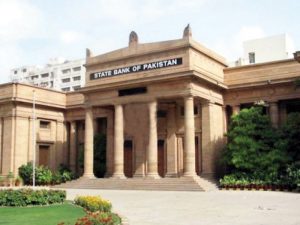SBP Governor: Pakistan will not default.
Earlier this week, the risk of default rose to a 13-year high of 52.8%.

KARACHI: The governor of the State Bank of Pakistan (SBP) shrugged off growing international anxiety that Pakistan could not be able to make payments on its maturing international debt obligations.
SBP Governor Jameel Ahmed said, “Let me tell you that we will be honouring all our debt commitments on schedule and there should be no anxiety about that,” speaking to the Pakistan Stock Exchange (PSX) on Thursday.
Moody’s Investors Service and Fitch Ratings, two prominent international credit rating agencies, recently downgraded Pakistan’s credit rating due to concerns that the nation’s ability to repay its debts has weakened in the wake of the devastating floods, which caused the domestic economy to suffer losses of over $30 billion.
“Recently, the Asian Development Bank (ADB) loaned Pakistan $1.5 billion. The Asian Infrastructure Investment Bank (AIIB) and other multilateral and bilateral organisations are also anticipated to make more contributions soon, according to Ahmed.
He stated that “these inflows not only assist in meeting our debt obligations but also strengthen our foreign exchange reserves.”
On August 29, 2022, the International Monetary Fund (IMF) combined its seventh and eighth reviews of the economy and reactivated its $6.5 billion loan programme for Pakistan, he remembered.
The country’s foreign exchange reserves are predicted to increase by 20% to a three-month high of roughly $9 billion with the receipt of ADB inflows of $1.5 billion, rebounding from the 40-month low hit at $7.6 billion on October 14, 2022.
Earlier this week, Pakistan’s risk of default, as determined by a 5-year credit default swap (CDS), surged to a 13-year high of 52.8%, up from less than 10% before the Covid-19 outbreak in Pakistan in February 2020.
The historical increase in default risk was a reflection of increased investor worry about timely debt re-payment on maturing debt on a worldwide scale.
Global investors have bought bonds (Eurobond and Sukuk) issued by Pakistan that are denominated in US dollars. On December 5, 2022, the nation is obligated to repay $1 billion against a maturing Sukuk.
Both current Finance Minister Ishaq Dar and his predecessor Miftah Ismail repeatedly guaranteed foreign investors that the nation would pay back its debt when the time came.
Since being chosen for a five-year term in August of 2022, this was the SBP governor’s first appearance in front of the public. Ahmed came to the stock exchange to publicly introduce the Roshan Equity Investing (REI), an online trading and investment platform made available to Pakistanis living abroad via Roshan Digital Accounts (RDAs) banking.
The governor reported that over 10,000 non-resident Pakistanis from all over the world had so far invested $35 million (Rs7.8 billion) in stocks of companies listed on the PSX.
He continued, “Investments into the conventional and Shariah-compliant Naya Pakistan certificates through RDA stood at $1.7 billion and $1.6 billion respectively, while investment via RDA into the stock exchange has been relatively muted, amounting to only about $35 million.
“Non-resident Pakistanis from 175 different nations have opened over 484,000 RDAs. The sum of the inflows from these RDAs is around $5.28 billion, he said. He added that the PSX’s market capitalization to GDP, which is low when compared to that of regional countries, is at 10%, and that the debut of the Roshan Equity Investment (at the PSX) was done at an advantageous time. “Stock market is working with the central bank to enable ordinary investors to invest and trade in attractive government debt instruments including treasury bills (T-bills) and Pakistan Investment Bonds (PIBs) through PSX,” said Nadir Rahman, Chief Operating Officer of PSX.
“PSX has been offering the chance to invest in debt securities since 2004. Retail investors, however, currently find it too challenging to invest in this, he continued.











































